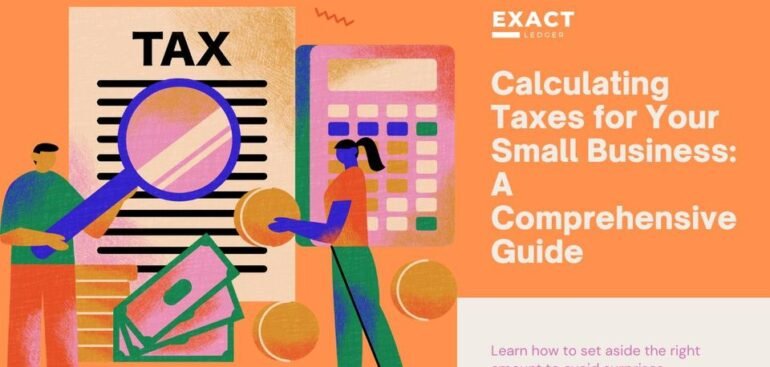For a business landscape, effective financial management is crucial for success. Specialty finance services offer tailored financial solutions that cater to specific business needs helping companies of all sizes achieve their goals. At Exact Ledgers we provide comprehensive financial and business services designed to support and grow your business.
Here are the top reasons to choose specialty finance services for your business.
Introduction to Specialty Finance Services
Specialty finance services are customized financial solutions designed to meet the unique needs of businesses. These services go beyond traditional financial management by offering specialized expertise in areas such as asset based lending equipment financing and structured finance. By leveraging specialty finance services businesses can access the capital and financial support needed to drive growth and innovation.
Why Choose Specialty Finance Services?
Access to Tailored Financial Solutions
One of the primary reasons to choose specialty finance services is the access to tailored financial solutions. These services are designed to address specific financial challenges and opportunities unique to your business. Whether you need working capital equipment financing or growth capital specialty finance services provide customized solutions to meet your needs.
Expertise in Niche Financial Areas
Specialty finance services offer expertise in niche financial areas that traditional financial institutions may not cover. This expertise ensures that your business receives the most relevant and effective financial solutions. Exact Ledgers provides a wide range of specialty finance services including advanced bookkeeping taxation business formation and strategic planning.
Flexible Financing Options
Specialty finance services provide flexible financing options that can be tailored to your business’s specific requirements. This flexibility allows businesses to access the necessary funding without the constraints of traditional lending criteria. Exact Ledgers offers various financing solutions that adapt to the evolving needs of your business.
Enhanced Financial Management
Effective financial management is essential for business growth. Specialty finance services offer advanced financial management tools and techniques that help businesses optimize their financial operations. Exact Ledgers’ management accounting services provide detailed financial insights and analysis enabling informed decision making and strategic planning.
Support for Business Growth
Specialty finance services play a crucial role in supporting business growth. By providing access to capital and financial expertise these services help businesses expand their operations, enter new markets and achieve long term goals. Exact Ledgers offers comprehensive financial and business services to support your business at every stage of growth.
Benefits for Small Scale Businesses and Startups
Access to Capital
Small scale businesses and startups often face challenges in accessing capital. Specialty finance services provide alternative financing solutions that help these businesses secure the necessary funds to start and grow their operations.
Customized Financial Solutions
Specialty finance services offer customized financial solutions tailored to the unique needs of small scale businesses and startups. This customization ensures that these businesses receive the most effective financial support.
Improved Cash Flow Management
Effective cash flow management is crucial for small scale businesses and startups. Specialty finance services provide tools and techniques to manage cash flow ensuring that businesses can meet their financial obligations and invest in growth opportunities.
Benefits for Large Scale Businesses
Advanced Financial Strategies
Large scale businesses require advanced financial strategies to manage their complex operations. Finance services provide the expertise and tools needed to develop and implement these strategies.
Risk Management
Risk management is a critical aspect of financial management for large scale businesses. Finance services offer risk management solutions that help businesses identify assess and mitigate financial risks.
Strategic Planning
Finance services support strategic planning by providing detailed financial analysis and insights. This support enables large scale businesses to make informed decisions and achieve their long term goals.
Comprehensive Financial and Business Services
At Exact Ledgers, we offer a full spectrum of financial and business services designed to support and grow your business. Our experienced team is dedicated to providing tailored solutions that meet your unique needs. Here’s a look at our comprehensive services:
Advanced Bookkeeping Services
We provide accurate and timely recording of financial transactions for your business ensuring that your financial records are always up to date.
Individual & Corporate Taxation Services
Our comprehensive tax planning and compliance services help individuals and businesses manage their tax obligations efficiently.
Business Formation Services
We offer expert assistance in setting up new businesses ensuring legal and regulatory compliance and providing a solid foundation for success.
Business Planning Services
Our strategic planning services help your business achieve long term goals and growth providing a roadmap for success.
LLC & LTD Formation
We provide professional guidance in forming LLCs and LTDs streamlining the process for legal structuring and ensuring compliance with regulations.
Controller Services
Our controller services offer oversight of financial operations ensuring accurate financial reporting and compliance with relevant regulations.
Management Accounting Services
We provide in depth financial analysis to aid in decision making and business strategy helping you make informed financial decisions.
CFO Support Services
Our CFO support services offer strategic financial management and advice to support your company’s growth and success.
Conclusion
Specialty finance services offer tailored financial solutions that can significantly enhance your financial management and support your business growth. By choosing a trusted provider like Exact Ledgers you can access expert financial professionals, flexible financing options and advanced financial management tools. Our comprehensive financial and business services are designed to meet your unique needs and help your business thrive in today’s competitive landscape.
FAQs
What are specialty finance services?
Specialty finance services are customized financial solutions designed to meet the unique needs of businesses including asset based lending equipment financing and structured finance.
Why should businesses choose specialty finance services?
Businesses should choose specialty finance services for access to tailored financial solutions expertise in niche financial areas flexible financing options enhanced financial management and support for business growth.
How can Exact Ledgers help with specialty finance services?
Exact Ledgers provides a full spectrum of financial and business services including advanced bookkeeping tax planning business formation strategic planning management accounting and CFO support.
What benefits do specialty finance services offer small scale businesses and startups?
Specialty finance services offer small scale businesses and startups access to capital customized financial solutions and improved cash flow management.
How do specialty finance services benefit large scale businesses?
Finance services benefit large scale businesses by providing advanced financial strategies risk management solutions and support for strategic planning.
What comprehensive services does Exact Ledgers offer?
Exact Ledgers offers advanced bookkeeping individual and corporate taxation business formation business planning LLC and LTD formation controller services management accounting and CFO support.
How can I get started with Exact Ledgers’ specialty finance services?
To get started with Exact Ledgers’ specialty finance services contact us for a consultation. Our team will assess your needs and develop a customized plan to help you streamline your financial management and achieve your business goals.



